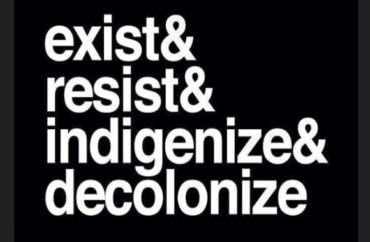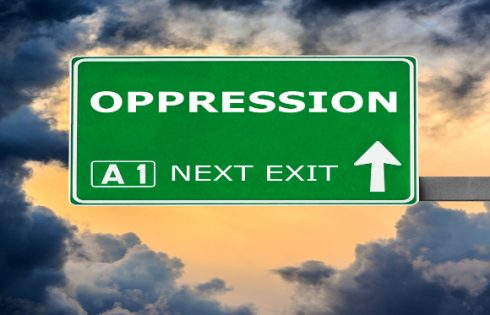
Meet the Stanford Student Alliance for Justice in Education, the student organization that wants its peers to be aware of how they’re taught “by empowering groups that are marginalized in educational settings.”
According to The Stanford Daily, the group’s focus is “decolonality,” just the latest in postmodern edu-jargon which is defined as — ready? — “the process of analyzing the ways through which education and accepted ideas reflect remnants of Western colonial thought and challenge the power structures and institutions of the modern world which have been shaped by colonialism.”
Or, in other words, “disrupting the dominance of Western schools of knowledge.”
New SAJE president Chris Koenig says the problems with the education system are many, and have to be addressed at different angles. For example, in January the group hosted an event focused on “helping marginalized students as well as scholars reclaim power in academic contexts by considering how to validate knowledge created by marginalized community members.”
The open mic took place in El Centro Latino y Chicano. According to [community outreach coordinator Manami] Suenaga, students told their stories and experiences in the classroom, such as whether a professor had asked them to speak on behalf of their race, or when a professor did not seem to understand the difficulties of being a first-generation college student. Suenaga emphasized that validating the experiences of students from marginalized groups and supporting them in changing systemic inequities is an important step for all students to take. …
[Outgoing SAJE president Nicole] Phillips said that, in conceptualizing and planning the event, the club drew inspiration from Latin American thought movements centered on the ways in which colonial ideology is embedded in the way that we learn.
According to Koenig, teaching methodology is another important factor in the quality of education that students receive. He said that the classroom structure, tradition and legacy have impacts both in the classroom and in research since they affect the type of knowledge that is generated and disseminated. The club aims to shape and advocate for ways to address these issues, as well as contribute to the efforts of others with the same aim.
That (re)shaping of “classroom structure, tradition and legacy” no doubt will consist of something like this:
“Focusing on rationality, debate and traditional Western concepts like free speech can tie us to established ideologies and numb us to the pain of those around us. It can easily be a way, consciously or subconsciously, of imposing the will of the powerful upon the oppressed.”
MORE: Editor promises to ‘decolonize’ prestigious academic journal
MORE: White women banned from university’s ‘decolonized sex’ event
IMAGE: dignidadrebelde/Flickr
Like The College Fix on Facebook / Follow us on Twitter






Please join the conversation about our stories on Facebook, Twitter, Instagram, Reddit, MeWe, Rumble, Gab, Minds and Gettr.